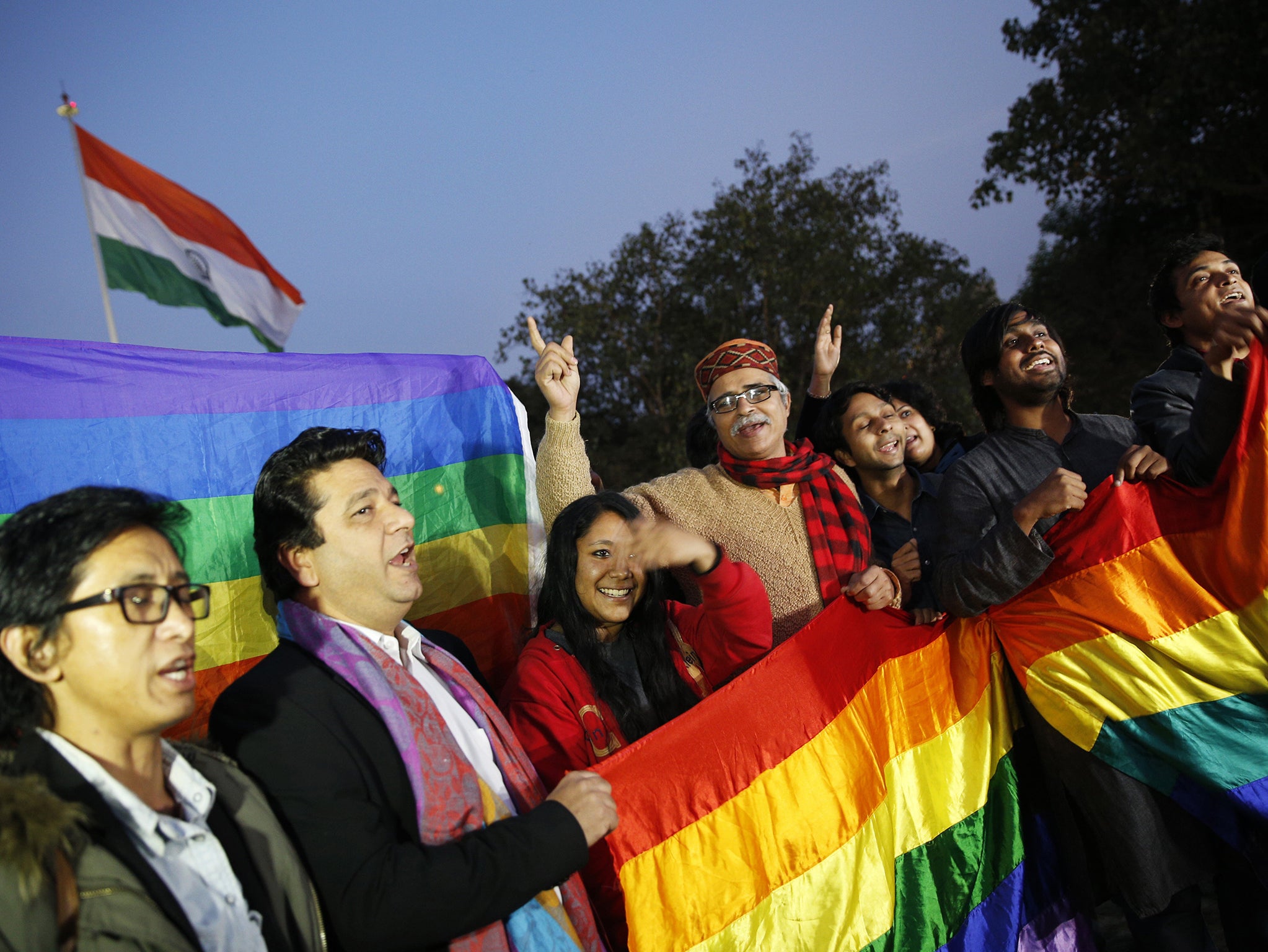India's supreme court could be about to decriminalise gay sex in major victory for LGBT rights
Court agrees to review Section 377 of the penal code which is a hangover from the British Empire

Your support helps us to tell the story
From reproductive rights to climate change to Big Tech, The Independent is on the ground when the story is developing. Whether it's investigating the financials of Elon Musk's pro-Trump PAC or producing our latest documentary, 'The A Word', which shines a light on the American women fighting for reproductive rights, we know how important it is to parse out the facts from the messaging.
At such a critical moment in US history, we need reporters on the ground. Your donation allows us to keep sending journalists to speak to both sides of the story.
The Independent is trusted by Americans across the entire political spectrum. And unlike many other quality news outlets, we choose not to lock Americans out of our reporting and analysis with paywalls. We believe quality journalism should be available to everyone, paid for by those who can afford it.
Your support makes all the difference.India's Supreme Court has agreed to reexamine a colonial era law which outlawed sex between men, in a possible breakthrough for gay rights in the country.
The court said it would reexamine the validity of Section 377 of the Indian penal code which bans “carnal intercourse against the order of nature with any man, woman or animal” which is punishable by life imprisonment and has widely been interpreted as a law against gay sex.
It is adapted from an 16th century English law and was adopted when India was a colony of the British Empire.
The court agreed to refer the question of its validity to a large bench for examination before October.
They were responding to a case brought by LGBT rights activists who said the ban put them at constant threat of arrest.
One of the justices said: “A section of people or individuals who exercise their choice should never remain in a state of fear.
“Choice can’t be allowed to cross boundaries of law, but confines of law can’t trample or curtail the inherent right embedded in an individual under article 21 of [the] constitution.”
The decision comes after the court ruled that India’s LGBT community had a fundamental right to express their sexuality in August.
The judges ruled that sexual orientation is covered under clauses in the Indian Constitution that relate to liberty even though the Indian government insisted there is no legal right to privacy.
Campaigners thought the ruling would pave the way for the repeal of Section 377.
Section 377 was dismissed by the High Court in Delhi in 2009 but this ruling was later overruled by the Supreme Court in 2013 which said it was the responsibility of Parliament, not the judiciary, to change the law.
The law is rarely informed when it comes to homosexuality – the Supreme Court observed few than 200 people had been convicted of homosexual acts under the legislation in 2013 in a country of 1.3bn people – but campaigners say the act still gives people the power to blackmail LGBT people and hampers efforts to combat HIV/Aids.
Some 1,347 cases were recorded under Section 377 in 2015 but most of these were related to alleged sexual offences against children.
LGBT activist Aditya Bondyopadhyay said the decision showed the court was reconsidering its earlier decision to uphold and was trying to correct it.
He said: “There has been so much criticism of the judgment, and mobilisation on the ground and acceptance levels have gone up by a lot, [despite] the conservative forces in the ruling party”.
India remains a conservative society and there appears to be little political appetite to change the law.
The ruling Bharatiya Janata, headed by Prime Minister Narendra Modi, is seen as hostile to LGBT rights and runs on a platform of Hindu nationalism which stresses the importance of traditional Indian masculinity.
But there are signs the country is changing as Congress, the main opposition party which ruled the country until 2014, has put the issue in its election manifesto.
Meanwhile, a survey of young Indians by the Centre for the Study of Developing Societies found 61 per cent still regard homosexual acts as wrong but respondents between the age of 15 and 17 were the most accepting.
Join our commenting forum
Join thought-provoking conversations, follow other Independent readers and see their replies
Comments